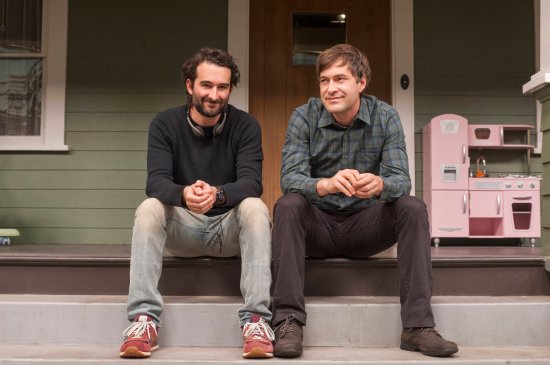
It's not just business. Sometimes bigger (as in running time and audience) really is better for the subjects of little films.
If you’ve been following the news out of the Sundance Film Festival, you may have been noticing that a lot of the news there is about something other than film. Namely, TV names, deals and projects appear to be everywhere at the festival this winter.
The festival lineup this year includes two series: The Jinx, a documentary series beginning in February on HBO, and Animals, an animated series from independent filmmaker brothers Jay and Mark Duplass, which is looking for a distributor. The Sundance Institute has setup a “laboratory” for TV creators, and Sundance founder Robert Redford has been quoted as saying that “television is offering more opportunities … and is advancing farther than major filmmaking.”
[time-brightcove not-tgx=”true”]
As Redford alludes to, part of the dynamic is an issue of business opportunities. There is, arguably, richer potential in landing a TV deal than making an independent movie, shopping it around, and trying to get it attention in theaters. Last fall when her show Transparent premiered on Amazon, Jill Soloway–who got the deal for the show after her movie Afternoon Delight won acclaim at Sundance–told me that indie filmmakers already realize that much if not most of their audience will see their movies on streaming or VOD; why not take the next step?
“It’s a rare, rare movie that’s about humans or about families or about people that can really make it theatrically,” Soloway said. “Independent filmmakers already have their heads around people on their couches watching their movies. For me coming out of Sundance and having Amazon offer this opportunity it felt like I was going to get to make a movie and I already had distribution.”
But I’d also argue that TV is a good match for indie filmmakers for other than economic and practical reasons. TV isn’t just an alternative venue for the kind of storytelling these filmmakers want to do. In many cases, it’s a superior one. As Soloway says, a lot of independent film is about slices of life and the evolution of relationships. You can treat that in a 90-minute movie, but, as in the case of Transparent and its interwoven family stories about sex and identity, you can do a lot more in a five-hour season. It might have made a fine movie, but it was the best TV show of 2014, and it now has a Golden Globe to show for it.
Turn on HBO right now, meanwhile, and you’re essentially watching an indie-film triple feature: Girls, from Tiny Furniture director Lena Dunham; Looking, produced and directed by Andrew Haigh (Weekend); and Togetherness, from the abovementioned Duplass brothers. Each show falls into the genre of the not-always-funny-comedy or drama-with-laughs, a category that sometimes irks TV traditionalists accustomed to clearer drama and comedy boundaries–but which is the stock-in-trade of indie film.
Arguably, that entire genre is really the indie aesthetic being transferred over to TV. And the talent has as well: a number of series have employed indie directors like Nicole Holofcener (whose credits include Enlightened and Looking) and Lisa Cholodenko (Olive Kitteridge and NBC’s upcoming The Slap). I’d love to see someone like Holofcener make a series; I love her films, like Friends with Money, but they often deal with precisely the kinds of intertwined relationships and class and status concerns that are perfect for series TV.
I’m not trying to write another triumphalist, TV-is-better-than-movies piece here. The two genres each have their strengths, and each does things better than the other. But I’m glad to see that TV now has both the status and the institutional support to lure in more artists whose stories might be better told in a longer format. Maybe the best hope for independent cinema is to recognize that, sometimes, it’s better off being independent from cinema.